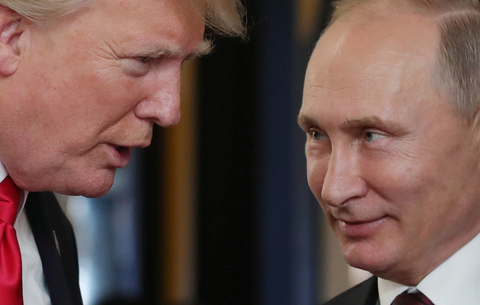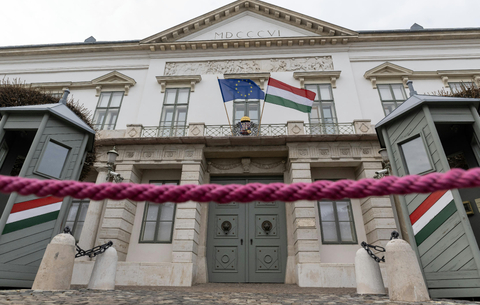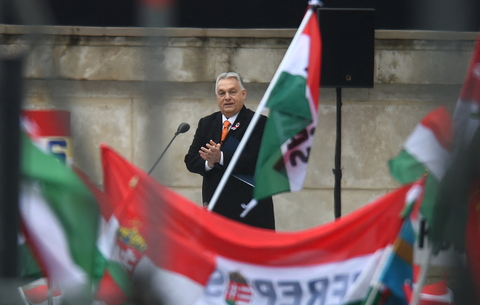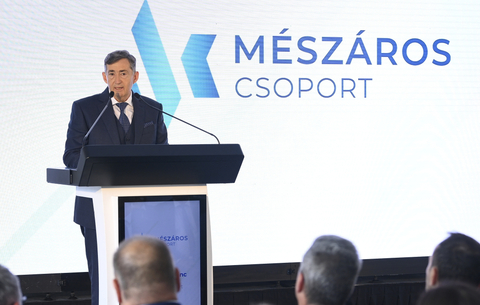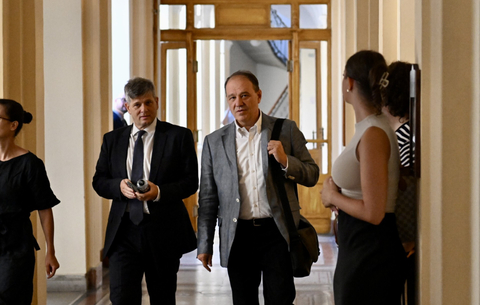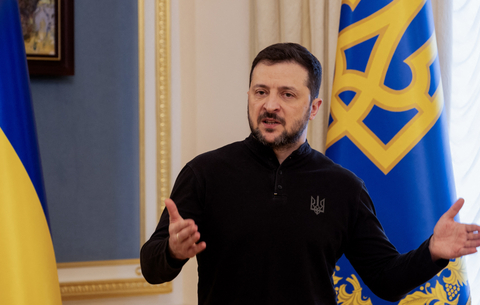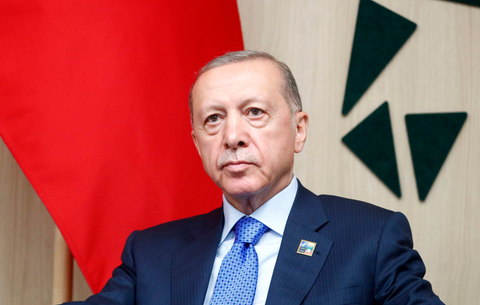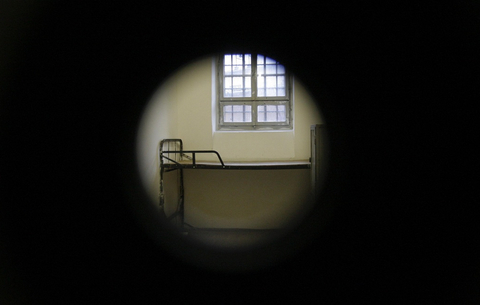Orbans eye on Kosa
On Sunday, the Fidesz congress will modify the party's constitution, incorporating local councillors into the party's highest decision-making bodies. Their leader will be Viktor Orban, not Lajos Kosa. What a surprise.
Since 18 April 1993, Viktor Orban has been the unquestioned leader of Fidesz, a party which has changed its name, its politics and its constitution numerous times over that same period. He spent 10 of those 13 years as the party's president. During that time, he has lost three parliamentary elections. The first, in 1994, catastrophically, the second, in 2002, by a whisker, after a fierce fight, and the third, in 2006, quite effortlessly. After none of these defeates has a major party figure questioned Orban's leadership in public, and no group within the party has has attempted to oust him.
One explanation for this is that the party is still run by the same small group of college friends who founded the party in 1998. Within this group, it is claimed, everyone has their own clear role, and it is in all of their interests that Orban, the 'charismatic leader'
should remain in power, since his fall would endanger all of their positions. This is why Kover, Ader and Kosa are all rumoured to complain from time to time, without giving any concrete expression to their dissatisfaction. There is something to this argument. It is also true that Orban has become such a lynch-pin figure on the right, that many believe the entire conservative-national-civic-right wing of politics would fall apart if Orban fell. But there are other reasons.
Orban, whom even his enemies acknowledge to be an unusually talented politician, has been using the full force of his genius since 2002 to strengthen his position within the party. Since its time in government, Fidesz has been more than a telephone answering machine.
It has turned itself into an 'alliance' that, with its strong membership base, its power to bring people onto the streets, has managed to gain representation throughout the country, drawing on the forces of very different interest groups. Orban took the Socialist Party as the model for his reformation of Fidesz, but he also managed to keep the party under strict central control, so there is no serious counterweight to his own influence within the party.
There is no parliamentary party so beholden to its leaders will as Fidesz. Every change to the party's constitution has strengthened Orban's position. There is no middle- or low-ranking leader within the party who is not entirely dependent on Viktor Orban's generosity. This structure gives the leader incredible freedom. He has given the lie to the claim that in modern parties, the leader gains his legitimacy from electoral success. Orban is skilled in bringing different groups together - a necessary, but not sufficient, skill for a politician.
Fidesz won a huge victory in the autumn local elections. Orban tried to present this as the 'third round' of the parliamentary elections, an attempt which, politically was wholly justified. However, it led to a new defeat, when after the elections he led his supporters first up then down the hill in a wave of extraparliamentary protest. This was in his interests, since he knows better than his supporters, that a lasting lack of success could endanger his position. Especially now Fidesz has such strong representation in the local councils. The party now has 238 mayors, 3085 directly elected local councillors and 498 councillors elected from party lists. They want to survive beyond this one cycle, and so have to represent their regions' interests. However, their interests are not necessarily the same as Orban's. For example, they have to work effectively with central government, while Orban's interest is in stoking the conflict further and creating an atmosphere of political tension. The county and city mayors and councillors won their legitimacy by way of an election. While their nomination took place with Orban's consent, they answer not just to the party and its president but to their constituencies as well. The mayor of a Budapest borough or a city is stronger in any confrontation with Orban than a simple county party official.
Under these circumstances, Lajos Kosa, a party vice-president, has come up with a proposal that clearly differs from Orban's vision. He is sitting down to talk with the prime minister, even if he has already announced that he does not expect anything to come of the meeting. It's not as if Kosa, the mayor of Debrecen, is any keener on Gyurcsany than Orban. It is unlikely that Kosa will make any gestures bigger than this, because the changes he wants must be brought about within his party, which currently regards any compromise with the government as straightforward treachery. Kosa is taking a practical approach. He does not want Fidesz councils to lose out on any EU subsidies. But he is also aware that powerful elected local government officials could serve as a base to support a change in direction before the 2010 parliamentary elections.
Orban does not want to see this happen, so he has taken the local councillors and brought them into his own army before Kosa can prise them away. This why he has established the Local Councillors' Forum, over which he is in sole charge. Supposedly, there were suggestions that Kosa or Zoltan Pokorni, mayor of the 12th district, would head this body. It is unlikely however, that Orban will not be chosen on Saturday.
Zsolt Zádori
